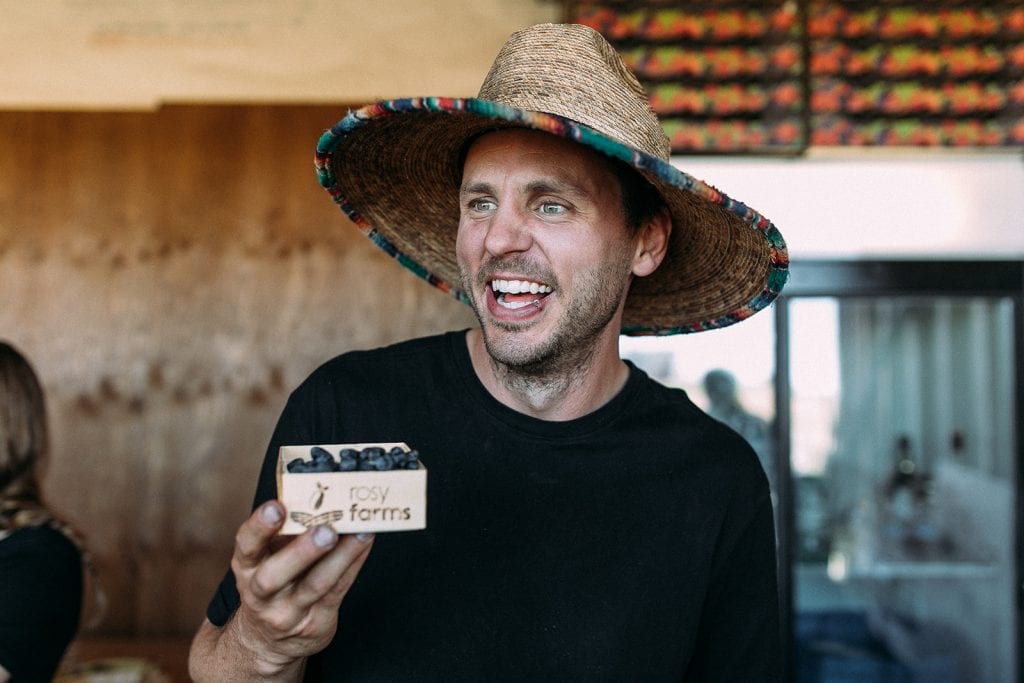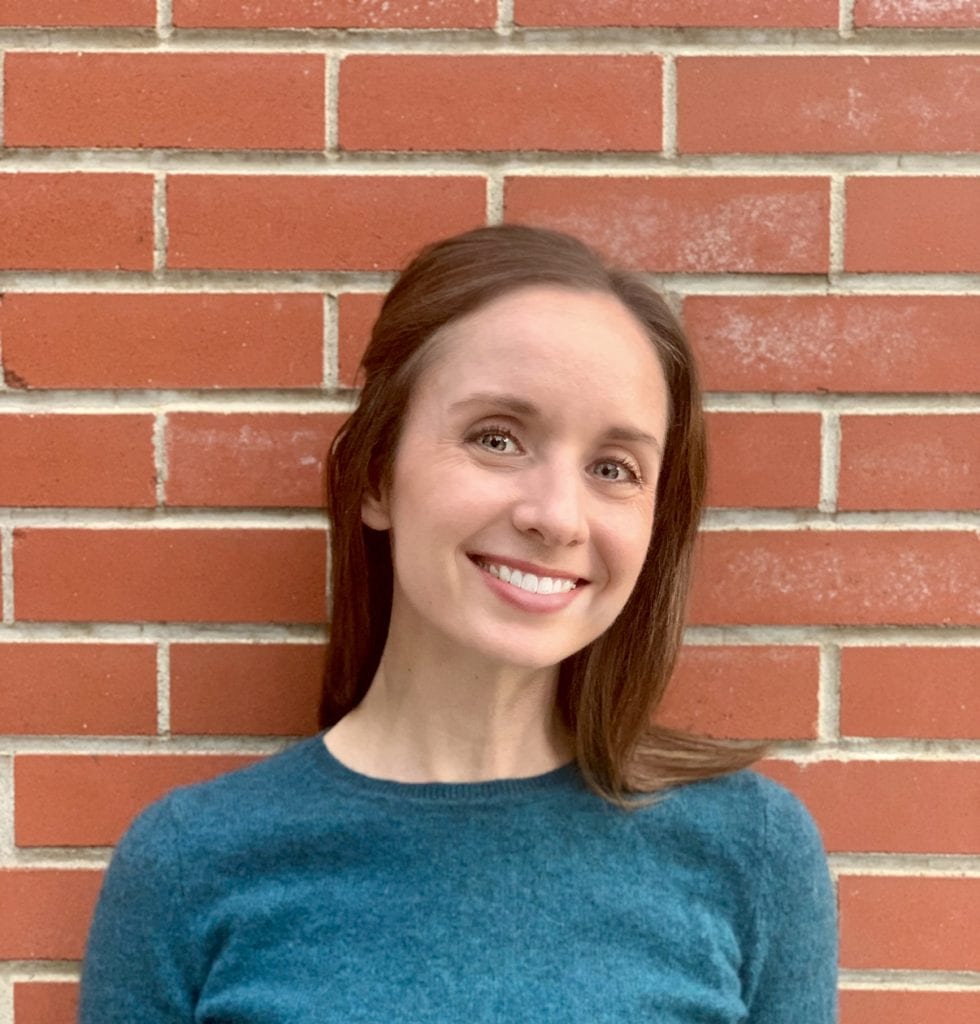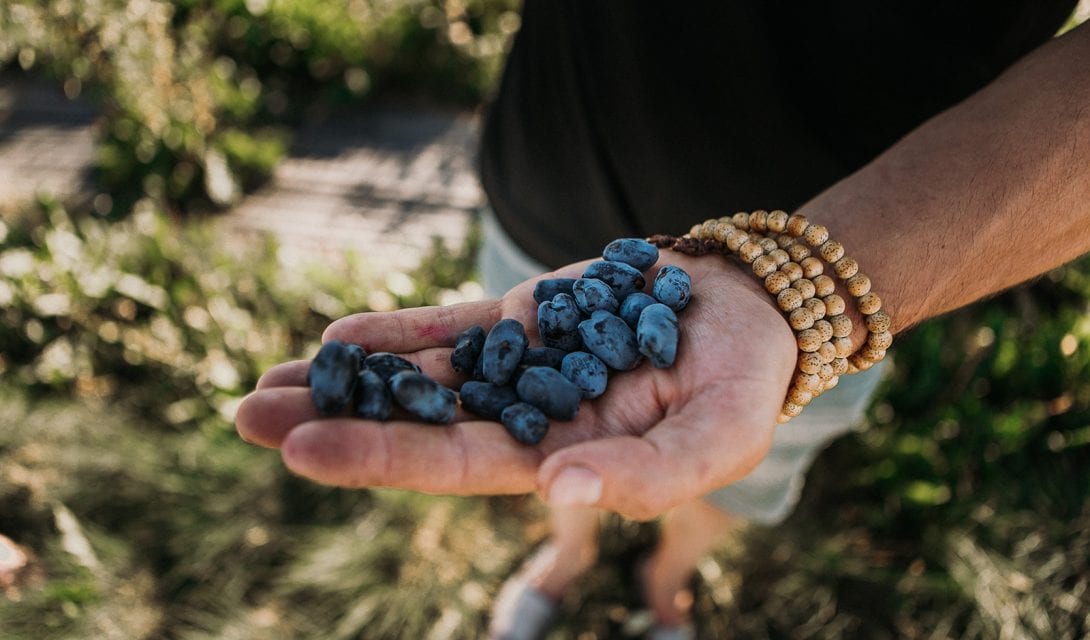It’s a brave new world out there, and two Albertans are poised to do very exciting things which could have a big impact on the world of science and food.
This duo is taking the world of food to new heights by thinking big and taking the path less travelled.
The Alberta Seed Guide keeps an eye on people within our industry who are worth watching — people making a difference in their field to the point where they help to move the needle and take our province in a new direction toward a brighter and more profitable future.
Andrew Rosychuk and Dawn Trautman are two of the latest Nuffield scholars. The Nuffield Canada Scholarship is a rural leadership program available to anyone mid-career who is involved in agriculture in any capacity of primary production, industry or governance. Each year scholarships are awarded to individuals who are expected to assume positions of greater influence in their field in the future.
Both of these influencers have one thing in common — they’re thinking of their industry in new ways to create new markets and create Agriculture 2.0.
“We work to cultivate young talent who really stand out in their field as people who want to create a better future for everyone,” says Leona Watson, executive director of Nuffield Canada.
We caught up with these two difference-makers who are all having an impact on the seed world and proving that thinking in new ways is the only way to create positive change through innovation.
WHERE ON THE WEB
For more information on the Nuffield program and a full list of scholarship recipients visit nuffield.ca
Berry Bright Future

Alberta’s Andrew Rosychuk has been picked for one of this year’s Nuffield scholarships. Photo: Andrew Rosychuk
Hungry deer, voracious bugs and a funny-shaped berry led Andrew Rosychuk to start his own business and look at value-added in a new way.
For Alberta’s first commercial haskap grower, Andrew Rosychuk comes from an unlikely background.
He’s a city boy who always wanted to be a farmer. His dad grew up on a farm but left it to become a lifelong civil servant for the City of Edmonton.
“He got off the farm because he didn’t want that lifestyle. This is a business fraught with risk. It felt strange getting into something he never really intended for me,” says Rosychuk, the 34-year-old owner of the Alcomdale-based Rosy Farms, the province’s first commercial haskap operation.
In 2005, while taking the production horticulture diploma program at Olds College, Rosychuk started growing haskap — 200 plants.
He continued experimenting by planting sour cherries and currants as well. The deer loved the sour cherries, bugs loved the currants, and he fell in love with the haskap, a blue oblong berry whose flavour is often described as a cross between blueberries and raspberries.
He wanted to make a full business out of it, but he quickly realized starting a haskap orchard was going to take more than an education and a dream.
He landed a job up in Fort McMurray and achieved his Canadian Red Seal welding and boilermaker trades tickets, which helped to finance the development of Rosy Farms, a 76-acre haskap orchard.
“All of my life experiences have culminated together in this love and passion for horticulture. Constructed from nothing, this is a haskap farm that I believe will change the fruit industry in Canada,” says the city slicker-turned-farmer.
Rosychuk is the founder of the Haskap Alberta Association and a co-founder of North 49 Fruit Corporation, a producer-owned marketing corporation bringing Canadian-grown fruit and processed fruit products to the global marketplace. It’s a new model which Rosychuk believes will help Alberta fruit growers avoid the mistakes of the past.
“We’ve created a new company to bring stability to a brand-new marketplace. It’s a volatile industry,” he says, referring to early efforts to market the Saskatoon berry which ultimately didn’t work.
“People were told to grow all this fruit but there was no market. They planted but had nothing to do with all of it. So, they sold locally and started undercutting each other, to the destruction of the industry. We want to avoid that with haskap.”
For Rosychuk, the industry is changing in a big way. Farmers aren’t just cash crop producers anymore. They are true businesspeople with the power to create their own product and establish markets, he notes.
His Nuffield study will focus on the value in developing on-farm, medium scale processing units, giving the primary producer an advantage in capitalizing on a value-added ingredient or product.
“If I had to create a manual for how to create an ingredient-based product, the first step would be to cost-analyze whether it’s worth it to create a product in the first place. People talk about how value-added is the next step. Question is, does your value-add really add value? Often you can outsource to someone else because they have a more efficient production process than you do.”
That’s where applying to be a Nuffield Scholar came in.
“Nuffield is about connection. You learn about high-end management and world agriculture. Right off the bat, one of the first things I was told by experts was, ‘It’s great you have a farming operation, but there’s so much more going on out there that you should get involved in and incorporate into what you do.’ The result is a worldwide network of people who can support each other to be successful.”
Part of that network includes Yoichiro Hoshino, a haskap breeder at Japan’s Hokkaido University.
“I think what Andrew is doing is hugely valuable,” he says. “Canada uses a lot of Japan’s genetics for its haskap varieties. In the future, in order to develop new varieties, we are considering incorporating Canadian native haskap genetics into our breeding. In order to do so, I think it is necessary to investigate the distribution and genetic diversity of haskap throughout Canada.”
Three of the over 30 varieties Rosychuk is trying were developed by breeder Bob Bors at the University of Saskatchewan’s Crop Development Centre — Boreal Blizzard, Boreal Beauty and Boreal Beast.
Rosychuk says Canadian haskap has come a long way in recent years, having been built on genetics originating from Japan and Russia. But there is more work to be done.
“From a yield standpoint, a blueberry bush the same size will produce four times the amount of fruit,” he notes.
For Rosychuk, it’s about opening up a new world for haskap as he carves a path for himself and people like him — people he says are not typically associated with the ag community.
“There are two kinds of people in the industry — people who have no real background in it but want to it to be their lifestyle, and people who have had the resources since birth and come from a farming family,” he says. “I wasn’t born into it, so I had to build things myself. I’m going to continue to build and create something new and better.”
About Andrew Rosychuk
Birthplace: Edmonton
Favourite movie: Garden State
Favourite food: Haskap
Words to live by/motto: Change or die. What makes you different? Don’t give me a problem, tell me the solution.
Get Smart

Alberta’s Dawn Trautman has been picked for one of this year’s Nuffield scholarships. Photo: Dawn Trautman
Dawn Trautman is poised to help usher in the next Green Revolution through artificial intelligence.
Dawn Trautman knows there’s a lot of promises behind Smart Agriculture — the emerging field of applying real-time artificial intelligence in the field, in greenhouses and harnessing the use of big data analytics in real time.
The key is speeding adoption. The way to do that, of course, is to create smart solutions to help growers adopt it.
“The idea is to bridge the gap between the potential and the reality. Right now, there’s a gap, and a large one. It’s like the Green Revolution. Before that there was a set level of activity, and afterward was a big bump. All of the sudden people’s best became a lot better,” says the 34-year-old Edmonton resident and manager of Smart Agriculture and Food with Alberta Innovates.
Plant breeding plays a huge role in that, she notes.
“We’re still learning about the potential of plants and the interaction of genetics, environment and management. If you have good genetics but poor management and poor environment, you don’t get much out of the plant. Without good genetics, even with good environmental conditions, you don’t get a good yield.”
The key, she says, is to think about plant breeding, seed and agriculture not in terms of commodities, but in terms of food — and to think about the people buying that food.
“Consumers are increasingly disconnected from their food sources but have an increased interest in health, sustainability and transparency. This is where technology can play a role in bridging the smart agriculture gap.”
That’s because Smart Agriculture can also provide information which consumers want — info on traceability and farming methods used.
As part of the Nuffield scholarship program, she plans to study the barriers for smart agriculture adoption for producers while also expanding on opportunities for technology companies to develop and integrate made-in-Canada solutions for sustainable production.
She sees a silver lining in the pandemic, which cut short a recent trip she took to Australia as part of her scholarship-related work.
“There’s more uncertainty in our food supply, especially with COVID. Supply chains are disrupted, people are staying home. It’s bringing instability, and ag is an industry vital to the wellbeing of society. It might not be, ‘Oh I wish I had only organic food to eat.’ Maybe it’s, ‘I wish I had any food at all,’” she says.
“That uncertainty only breeds more mistrust, which is something Smart Agriculture can help with.”
Stacy Felkar is event co-manager for Olds College’s AgSmart, a two-day event focused on data and technology across the agriculture sector which held its first event in 2019. Felkar worked with Trautman to glean key insights which would allow AgSmart to showcase technology that’s vital to the future of Canadian plant breeding.
“Dawn was key to helping us pull off what we want to be a truly valuable exhibition. She’s very forward thinking looking at the role this technology will play,” Felkar says. “We’re based on the premise that we need to produce food more efficiently and sustainably using Smart Agriculture technology — it’s part and parcel of what we do, and Dawn is a real leader in this and has her finger on the pulse of what’s happening.”
According to Trautman, the second decade of the 21st century will be a defining one in the history of Canadian smart agriculture, provided the gap can be closed through more innovation she’s hoping to enable through pan-Canadian projects led by groups such as Alberta Innovates, which initiate, fund, and manage research and innovation partnerships.
“Places on earth where the population is expected to grow cannot access anymore land to grow food. Smart agriculture is really the only way to unlock the full potential that’s there,” she says.
About Dawn Trautman
- Birthplace: Edmonton, Alta.
- Favourite movie: I like movies, but I can’t say that I have an absolute favourite!
- Favourite food: Dark chocolate 🙂
- Words to live by/motto: “Do the best you can until you know better. Then when you know better, do better.” —Maya Angelou





